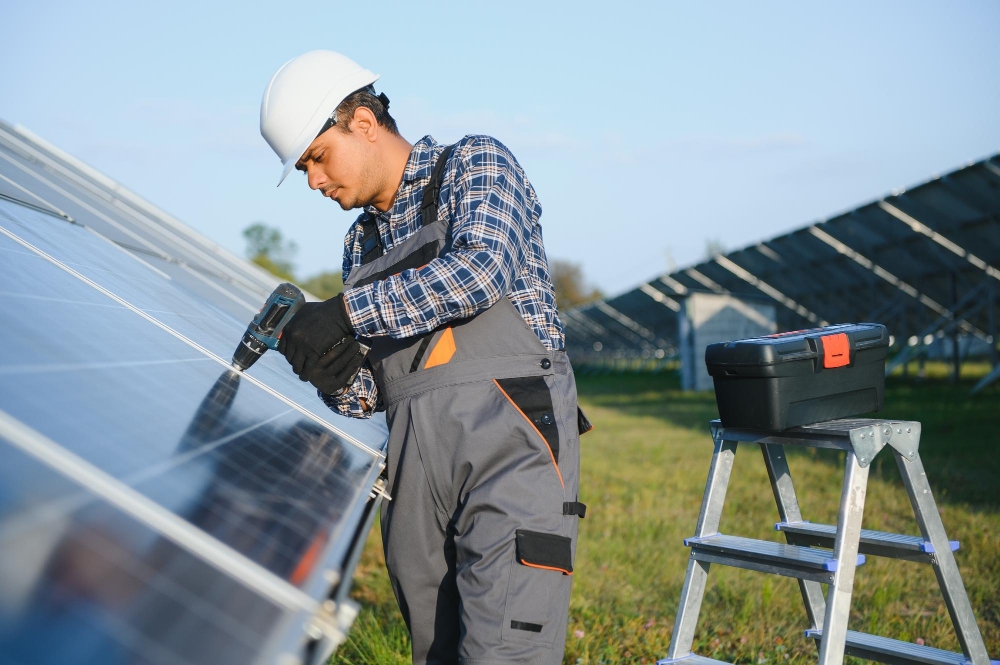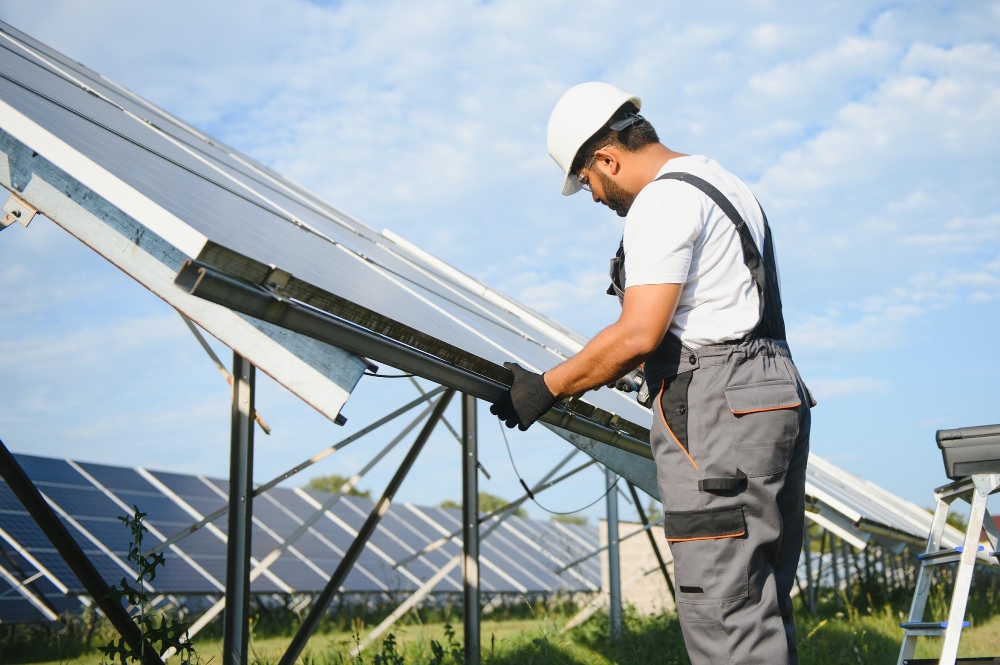
Switching to solar energy is one of the most talked-about decisions homeowners and businesses face today. With rising electricity costs and environmental concerns, solar energy promises a brighter, cleaner, and more cost-efficient future.
But is solar panel installation really worth the investment?
Let’s break it down. We’ll explore the costs, long-term savings, available incentives, and the real return on investment. This guide could be your first step toward energy independence.
Solar panels, also known as photovoltaic (PV) panels, are devices that convert sunlight into electricity. They’re made up of many solar cells—typically from silicon. These cells capture energy from the sun and turn it into usable power for your home or business.
Here’s how they work in simple terms:
Solar panels are usually installed on rooftops. However, they can also be mounted on the ground or integrated into carports and other structures. They’re silent, clean, and long-lasting, offering decades of reliable energy production.

Before diving into the benefits, it's essential to understand the actual price tag.
The cost of solar panel installation in the U.S. varies based on the following factors -
But here's a general idea:
Factors That Affect Cost:
Thankfully, solar panel installation isn’t a full out-of-pocket expense. There are government incentives that make it far more affordable.
Together, these incentives can reduce your upfront investment by 40-60%.
Here’s where it gets exciting.
Once installed, solar panels dramatically reduce your monthly electricity bills. For some, bills drop to nearly zero.
If your average electric bill is $120 per month and your panels cut that to $20, that’s $1,200 a year saved — or $24,000 over 20 years.
Plus, with rising utility rates, your savings increase every year.
Most homeowners break even within 6 to 10 years. After that, it’s pure savings.
That means 15 to 20 years of free energy once you’ve recovered your initial investment.
Installing solar panels not only cuts bills — it can also increase your home’s value.

While financial savings are often the primary motivator, solar is also one of the cleanest energy sources available.
If you're someone who cares about future generations, solar is an impactful step in the right direction.
Let’s bust a few myths that might be holding you back:
Almost everyone — but here’s who benefits the most:
If you're renting or planning to move soon, solar might not offer immediate value. But if you're rooted, it’s worth a close look.
When you consider the cost vs. savings, solar panel installation is absolutely worth it.
Installing solar panels comes with a wide range of advantages. Here's why going solar is a smart, future-proof decision:
Generate your own electricity and reduce or eliminate your monthly utility costs. For businesses, this means lower operational expenses and improved cash flow.
Take advantage of federal and state tax credits, rebates, and net metering programs that significantly cut your upfront costs.
Homes and commercial buildings with solar systems often sell for more and move faster on the market.
Break free from rising energy prices and protect your property against future rate hikes and power outages.
Solar power is clean, renewable, and sustainable. By switching, you’ll reduce your carbon footprint and contribute to a healthier planet.
Solar systems are durable and require minimal upkeep. Most come with warranties of 20–25 years or more.
Best of all? You’ll be part of the movement toward a more sustainable future.

At D33 Electric LLC, we provide professional solar panel installation services in Queens. With us, you get:
Are you ready to power your home with the sun? Contact D33 Electric LLC to schedule your installation and receive a free estimate.
D33 Electric LLC was a lifesaver when my power went out. Fast, professional, and affordable!
The best electricians in Nassau County, NY! They upgraded my electrical panel with no issues at all.
I highly recommend D33 Electric. They installed my EV charging station perfectly!
Great service! I called them for a smoke detector installation, and they were quick and professional.
These guys are true professionals. I won’t call anyone else for my electrical needs!
Affordable pricing and top-notch service. Best electricians near me!